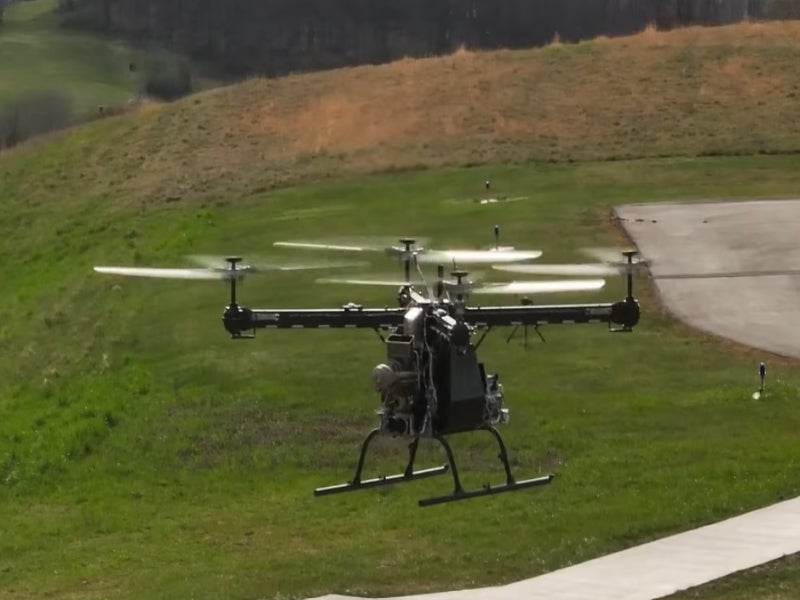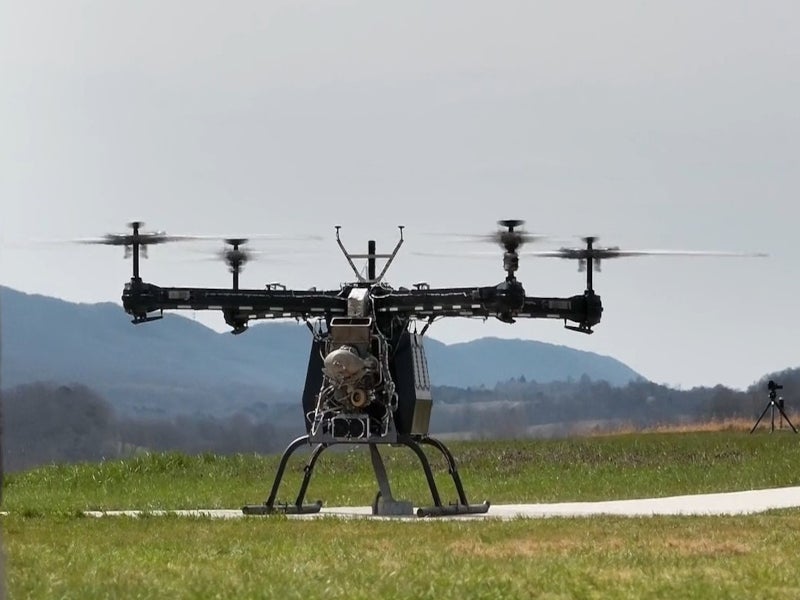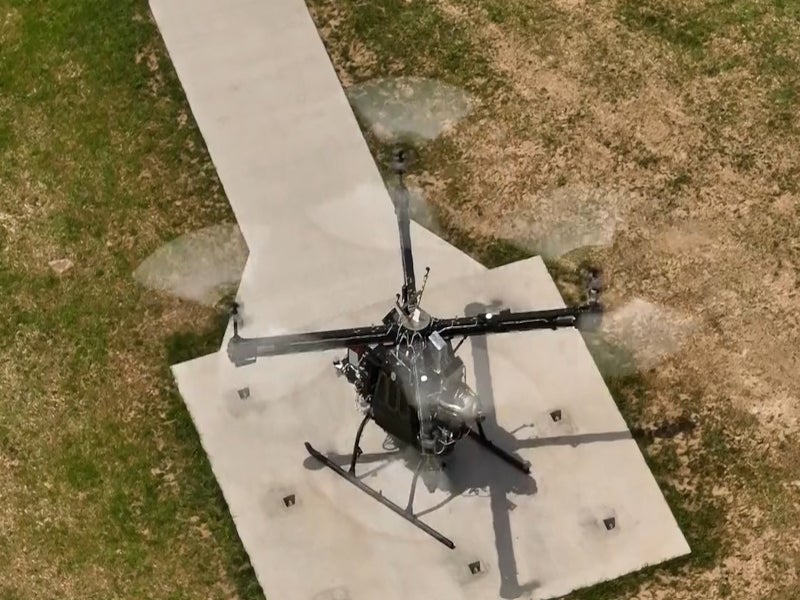The Kargo unmanned aerial vehicle (UAV) is a medium-lift autonomous unmanned aerial system (UAS) developed by Kaman, an aerospace and defence company based in the US.
It is designed for expeditionary logistics, benefiting the US Military, allies, partners, and commercial clients.
The Kargo UAV intends to offer cost-effective, dependable, and easily maintainable logistics assistance, capable of resupplying troops in the most austere and extreme conditions anticipated in future military operations, as well as for routine logistical tasks.
The full-scale Kargo UAV completed its maiden flight in December 2023 and is expected to be deployed in the armed forces by 2026.
Development details
The purpose-built Kargo UAV demonstrator was launched in September 2021 to meet the logistics requirements of the United States Marine Corps (USMC).
In 2022, the USMC selected the UAV for the Medium Unmanned Logistics Systems – Air programme, managed by Naval Air Systems Command (NAVAIR) PMA-263.
The UAV is also actively participating in the Marines’ Medium Autonomous Resupply Vehicle – Expeditionary Logistics programme, overseen by NAVAIR PMA-263, with the competition concluding in a fly-off scheduled for July 2024.
In October 2023, Kaman received a contract from the US Army to develop an unmanned cargo delivery demonstrator based on the Kargo UAV, capable of transporting 800lb over 100 miles.
The partnership with the US Army allows for further development, including scaling the design for larger payloads.
The Alaska Center for UAS Integration, part of the University of Alaska Fairbanks Geophysical Institute, played a crucial role in the Kargo UAV’s flight test operations.
Kargo UAV design and specifications
The Kargo UAV is 19.3ft long, 7.5ft high and 7.3ft wide when fully stowed. It weighs 1,340lb. Equipped with four teetering two-bladed rotors, the UAV’s length and width expand to 24.4ft each when the rotors are extended.
The drone can hover for an extended period without transitioning to forward flight. It features self-deploying capability without a payload over 523nm and a maximum lifting capacity of 800lb, either in its conformal pod or via external sling load.
Featuring vertical take-off and landing, the UAV operates above 10,000ft and can be housed in a standard cargo container. It requires only two personnel to prepare for flight from full stow in just 20 minutes.
The Kargo UAV’s built-in autonomy, derived from the Department of Defense’s Autonomous Aerial Cargo Utility System programme, allows it to navigate without GPS in challenging terrain. It has sense and avoid capabilities and delivers payloads with precise accuracy.
Engine and performance
The Kargo UAV is powered by Rolls Royce’s 300 HP RR300 gas turbine engine that runs on jet fuel. It can travel at a speed of 121 knots.
Kargo UAV benefits
The Kargo UAV is a cost-effective and highly adaptable cargo transport system, designed to be easily replaceable without mission interruption.
Its durable construction is reliable and simple, with a low count of unique parts, facilitating maintenance in remote areas with limited staff. The UAV’s transportability is compatible with both tactical and strategic mobility assets.
Safety and utility are enhanced by the Kargo UAV’s high rotor clearance and the absence of a tail rotor.
The UAV’s payload flexibility is exemplified by its conformal supply pod, which minimises drag and optimises fuel efficiency, allowing for precise delivery of supplies.
Additionally, the Kargo UAV can conduct autonomous search and rescue missions and deliver to remote locations.
Contractors involved
Kaman selected Near Earth Autonomy, a US-based aviation and aerospace component manufacturer, as a partner to provide autonomy features for the pilot Kargo UAV programme.
Near Earth is supplying technologies such as obstacle avoidance, precision landing, sense and avoid, and navigation in GPS-denied environments for the project.
Kaman collaborated with Textron Systems, an aerospace and defence technologies company based in the US, through a strategic alliance agreement to work on critical technologies for Kargo UAV in May 2024.






